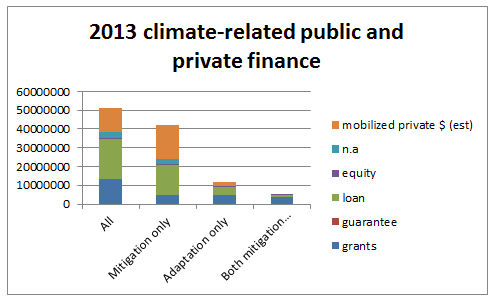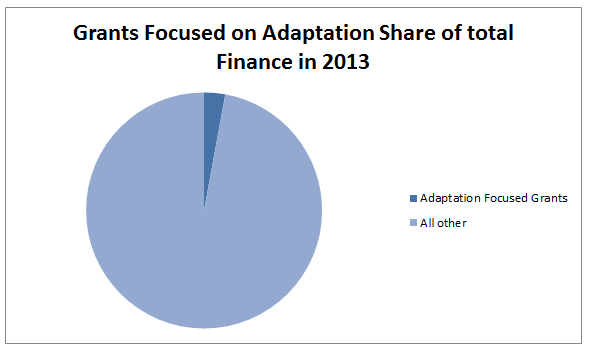Behind the numbers: Getting to $100 billion in climate finance
 Ricardina Sune Llasa holds a thermometer used at a weather station in the Peruvian highlands. From 2009-2012, Oxfam America supported rural indigenous people in the mountainous region of Espinar, Peru to become more resilient in the face of rainfall shortages, extreme cold, and other life-threatening consequences of climate change and to monitor weather data to respond to climate-related emergencies. Groups like these in Peru could utilize additional financial and technical support. Photo: Percy Ramírez / Oxfam America
Ricardina Sune Llasa holds a thermometer used at a weather station in the Peruvian highlands. From 2009-2012, Oxfam America supported rural indigenous people in the mountainous region of Espinar, Peru to become more resilient in the face of rainfall shortages, extreme cold, and other life-threatening consequences of climate change and to monitor weather data to respond to climate-related emergencies. Groups like these in Peru could utilize additional financial and technical support. Photo: Percy Ramírez / Oxfam America
While there’s been progress made towards the USD 100 billion goal, there’s still a long way to go.
Annaka Peterson Carvalho is the Senior Program Officer of the Adaptation Finance Accountability Initiative, led by World Resources Institute, Overseas Development Institute, and Oxfam.
Today, Organization for Economic Cooperation and Development (OECD) and Climate Policy Initiative (CPI) launched a report outlining levels of climate finance in 2013 and 2014 and progress towards the USD 100 billion goal, which was committed at the Copenhagen climate change negotiations in 2009.
And while there’s progress it’s not good.
The report comes ahead of an informal ministerial meeting in Lima, Peru, hosted by the Peruvian Presidency of COP20 and the French Presidency of COP21, with the aim of building consensus on the progress being made towards the climate finance goal. With 100 ministers slated to join the informal meeting on Friday, this is a key moment on the road to Paris. Climate finance and progress towards the $100 billion goal has been a thorny issue in the negotiations. Here’s hoping there will be a breakthrough in Lima.
How close to the $100 billion goal are we?
Five years after the 2009 Copenhagen commitment to mobilize $100 billion per year by 2020, the headline figures of $52.2 billion mobilized in 2013 and $61.8 billion mobilized in 2014 suggests that considerable progress has been made. But those figures deserve a closer look.
The problem is that there still isn’t consensus on what should count towards the $100 billion goal. And while donor countries assert their prerogative to define what counts, both the politics to reach an agreement in Paris and the scale of resources needed to address the climate challenge, demand more than generous accounting.
So what did they count?
According to OECD DAC project-level data, which is only currently available for 2013, about $13 billion was grants – that’s only 25 percent of the new $52.2 billion 2013 figure published today. This means that the bulk of it was private finance and loans (both concessional and non-concessional) which countries will need to pay back.

Why is public grant finance so important?
Private finance has a vital role to play in the global response to climate change – we need to see a shift in global investment flows. But poor people’s resilience to climate change relies on basic essential services and public goods that require public finance. Things like disaster risk reduction and early warning systems don’t generate profits for private investors. While the private sector may invest in measures to protect their own property or supply chains, they will not be able to serve the broader public interest and needs of vulnerable communities.
Persistent adaptation gap
In 2013, only $1.5 billion of these funds were grants focused on adaptation. Oxfam estimates that in 2014 this may have risen to $2 billion (but data on bilateral contributions in 2014 isn’t publically available yet). In 2013, an additional $3.1 billion in grants were included in the OECD reporting, however, climate change is NOT the main focus of these projects, and every donor has a different approach to accounting for these funds. Plus in my day job – tracking adaptation finance to local communities – there is limited evidence to suggest these projects, where climate is one of many objectives, have actually taken climate change into consideration.

The costs of adaptation are rising, but international support isn’t keeping pace. And when private finance gets added into the picture, the mitigation/adaptation imbalance only gets larger (according to this OECD report only 16% went to adaptation in 2013-2014). Ultimately, the climate crisis cannot be tackled unless we meet the needs of the world’s most vulnerable countries and communities – and more public finance for adaptation is needed to do that.
Making Friday’s Ministerial meeting a success
The success of this joint effort of the French and Peruvian presidencies to build consensus on the $100 billion goal, will largely depend on what they do with the content of this report. New announcements to scale up climate finance, like those we heard at the UNGA at the end of September are welcomed. But meeting the needs of the world’s poorest countries and people, those that have done the least to cause climate change, will require more than just improved methodologies for accounting for private finance. If Paris is to be a success, there must be a little more on the table for the people on the frontlines of climate change.